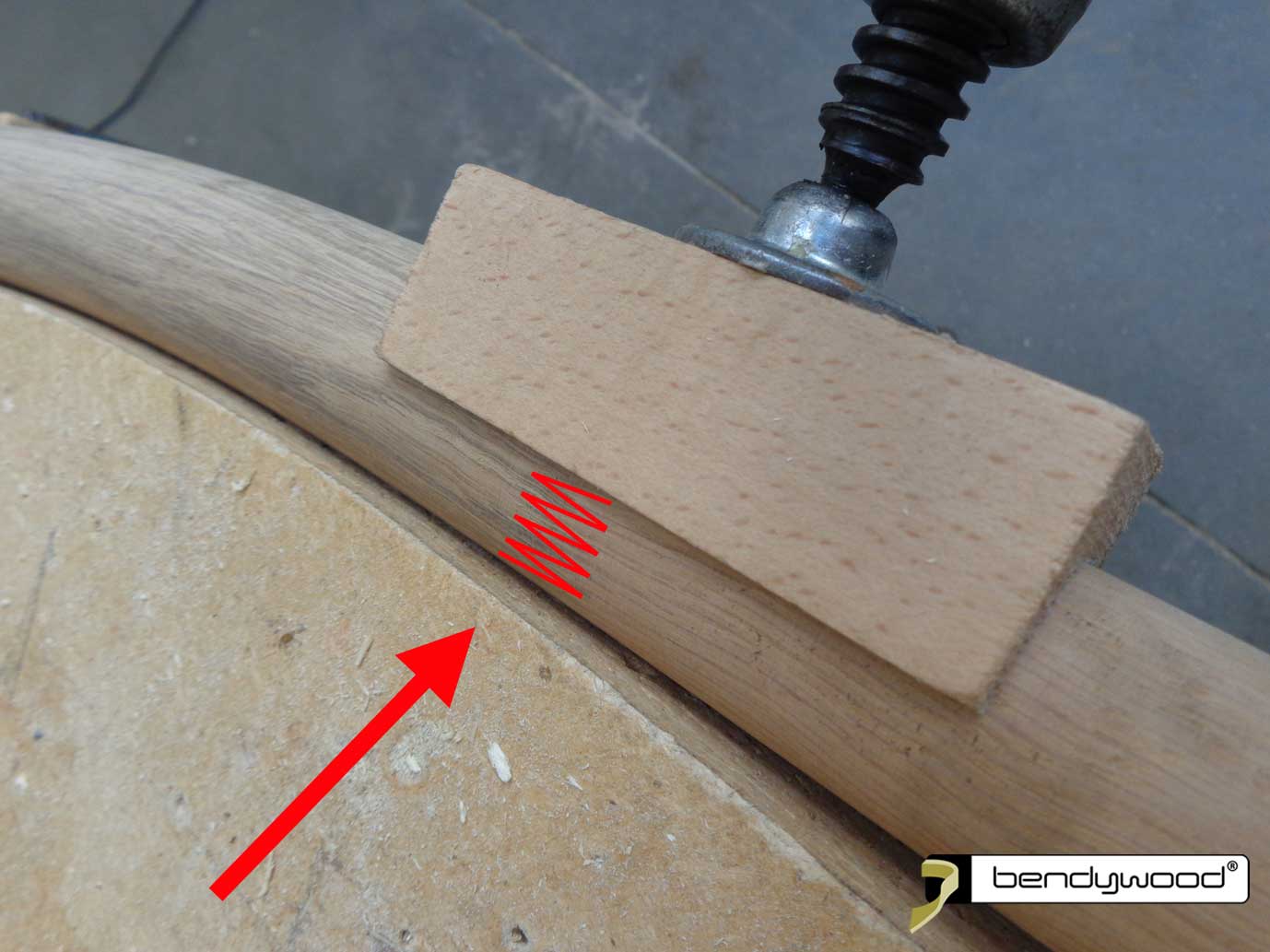Bending wood should always be bent against a template. The bending radius of the template should, if possible, be approx. 30% shorter than the finished radius because of the backbending.
See: "Spring-back after being taken from the mould"
- mill the profile
- increase moisture level of the wood to approx.12%
- build the bending template
See pictures of bending templates under:
"Bending moulds for Bendywood®"
How to bend:
Start bending at one of the two ends and fix the bent part to the template with clamps, tension straps, etc.
After bending:
Wait until the shape has stabilised, at least 24 hours, preferably by drying on 8% in a warm room.
You can only achieve uniform bends if Bendywood® is bent with 12% wood moisture and then dried bent to 8%.
At a moisture content of about 12% Bendywood® can be bent:
- up to a radius of 1 : 10 if not jointed in length (e.g. a 10 mm thick section up to a radius of 100 mm)
- up to a radius of 1 : 20 if jointed in length (e.g. a 10 mm thick section up to a radius of 200 mm)
When bending by hand, the handrails with normal joints![]() are also suitable.
are also suitable.
PARTICULARLY IMPORTANT:
1. Always bend around a mould - as shown in the following video
2. Position the matching bend mould / chunks for pressing exactly opposite to the joint


3. Ascending handrails should be pre-bent around a flat mould. Only after approx. 24 hours the 3D bending can be carried out at the banister.
IMPORTANT:
Humidify dry Bendywood® when you need to bend it to a tight radius.
Bending radii up to a radius of 1 : 30 can also be reached when the wood is dry. In this case, however, the "spring-back" will be greater (also see "Spring-back after being taken from the mould").
Should you be in need of raising the moisture content, the Bendywood® should be placed between two layers of moist cardboard. A few spacers should be positioned above and below the wood in order to avoid direct contact with the cardboards. Finally, the whole lot should be covered with a plastic foil and left at rest for 1 - 2 days and nights: in this way the moisture content is raised to about 12%, the ideal humidity for bending.
Using this technique (referred to as "Sandwich Method") the Bendywood® absorbs humidity from the air without getting wet.
ATTENTION:
BENDYWOOD® MUST NOT BE PLUNGED INTO WATER OR COME IN DIRECT CONTACT WITH WET MATERIAL.
The ingress of water will make the wood swell and – in case of jointed parts – it can cause the glued joints to open up.







